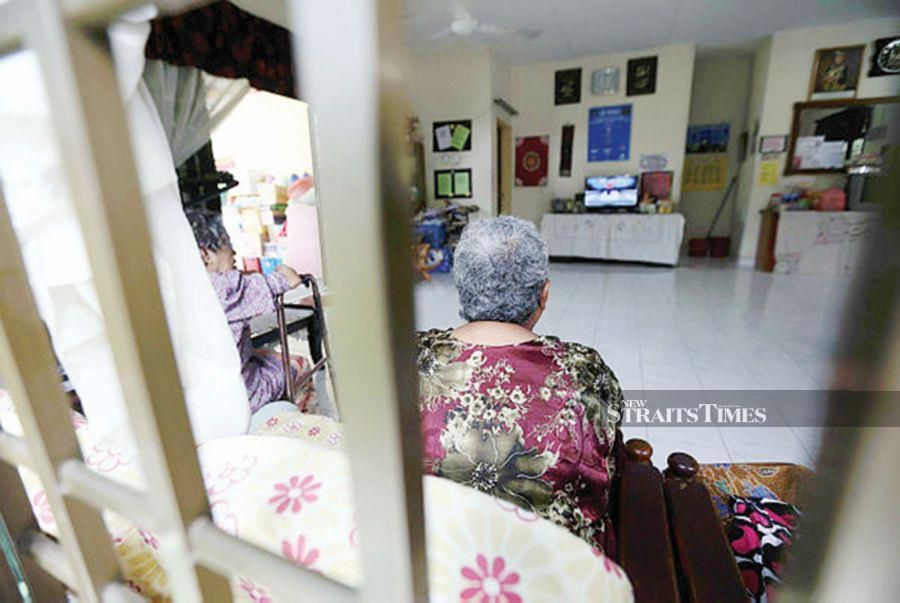THE Department of Statistics has estimated that a baby born last year is expected to live up to 75 years. This is an increase of over 20 years in life expectancy since 1957. This extended longevity is largely due to improvements in living conditions and advancements in healthcare, which have contributed to lower mortality rates in recent decades.
It also reported that in 2017, the total fertility rate was 1.9, which is below the replacement level of 2.1. Total fertility rate is the average number of children a woman would have if she lives to the end of her childbearing years. Such statistics suggest that the average number of babies born per woman in Malaysia is insufficient to replace the mother and her partner. Declines in fertility rate usually raise alarm bells as it brings about negative prospects especially in terms of labour supply and family roles. Such declines are due, in part, to improvements in education and employment opportunities for women which cause them to delay marriage and hence childbirth. However, this trend is not entirely problematic.
BENEFITS AND OPPORTUNITIES
A decline in fertility and mortality lays the foundation for a period of accelerated economic growth called the demographic dividend, or the economic growth which may happen provided other economic factors are favourable. It results from changes in a country’s age structure as people shift from living short lives and having large families to living longer lives and having smaller families.
Having fewer children changes the population age structure where the number of young dependents becomes smaller relative to the working-age population, creating a bigger support base. In such a situation, production exceeds consumption, and fewer resources are needed to support the dependents. This frees up resources which could be channelled towards investment and economic development.
Smaller numbers of children in a household generally lead to larger investments per child, more freedom for women to enter the workforce and more household savings for old age. While in terms of government resources, it implies an expanding population of taxpayers relative to the number of dependents eligible for the benefits.
In theory, at the micro level, this may improve living standards for families and boost incomes per person; it can also result in significant gains in the economic development of a country at the macro level.
This is the first demographic dividend which Malaysia has been enjoying in decades, and is expected to end in 2029 when income growth slows, and the ageing of the population begins.
Economic growth resulting from the first demographic dividend depends on the enhancement of productivity of the working age population. The productivity of young adults is highly influenced by the quality of education and employment practices, technology and the timing and level of childbearing. It is imperative to have policies in place that make it easier for young parents to work and gender friendly labour policies that encourage higher female workforce participation while productivity at older ages depends on healthcare support, tax incentives and disincentives and the structure of pension schemes and retirement policies. Because the first demographic dividend is only temporary, countries should take advantage of this golden opportunity by implementing the above economic and social policies before it is too late.
Eventually, declines in fertility will reduce the growth rate of the working age population, while further improvements in mortality will extend lifespan causing the elderly population to grow faster. Keeping other factors equal, the growth of per capita income slows down, and the first dividend becomes negative.
There will be 6.3 million Malaysians aged 65 and older in 2040, and it takes merely 25 years for Malaysia to experience an ageing population where the 65-year olds constitute 15 per cent of the population. For perspective, France grew old within 115 years.
However, an ageing population opens up another window of opportunity — the second demographic dividend — where lower fertility and increasing life expectancy stimulate the accumulation of assets in all age groups. This is driven by old age consumption for a longer retirement period due to increasing life expectancy. With higher income per capita gained from the first demographic dividend and reduced child dependency as a result of fewer children, individuals are more able to prepare for old age consumption through savings and investment.
The preliminary computation done for Malaysia shows that it could expect positive growth of the second demographic dividend to last beyond 2060.
GOVERNMENT POLICIES
The extent to which the second demographic dividend is realised depends on how well a country provides support for its elderly. As the population ages more quickly, the resources needed to support the elderly increases. This may cause severe strains on the public pension system and family resources.
However, if workers can start accumulating assets earlier on, they can achieve more financial independence during retirement and depend less on the government and their families. In doing so, government policies and financial mechanisms relating to property, contributory pensions and personal savings must be put in place at the onset of the population ageing process to help workers accumulate assets. Another aspect of equal importance is financial literacy in order to educate the elderly on how to save money and utilise the accumulated wealth effectively.
Unlike the first demographic dividend, the second dividend is not transitory and continues indefinitely, where more wealth may lead to a permanent increase in income per capita.
However, the demographic dividend is a potential, not a destiny. To what extent the dividend can be realised is dependent on the right policies and implementation. These policies include education and labour, economic, pension and retirement, and healthcare support that would empower citizens and enhance productivity-driven growth.
Working towards seizing the demographic dividends means investing in our parents now and our children’s future. Creating opportunities and building them is our pay-it-forward responsibility.
The writer, who is president of the Malaysian Economic Association, is emeritus professor and director, Social Wellbeing Research Centre (Employees Provident Fund endowed centre), Universiti Malaya.






